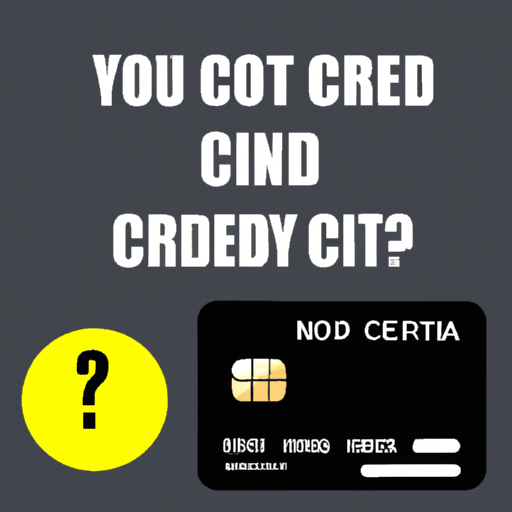Why Is a Credit Card Not Considered as Money: The Crucial Difference Explained

Sure, the content for the H2 in English would be:
1. Understanding the Difference Between Credit Cards and Money
Credit Cards
While both credit cards and money are tools for making purchases, they function very differently. Credit cards allow users to borrow money from the card issuer up to a certain limit to make purchases. The cardholder then has to repay the borrowed amount, often with interest, depending on the terms of the credit card agreement.
Money
On the other hand, money represents actual funds that the individual possesses and can use to make purchases. Unlike a credit card, money does not involve borrowing and does not accumulate interest on its own. It is a direct representation of a person's financial resources.
Understanding the differences between credit cards and money is crucial for financial management and decision-making. While credit cards offer convenience and rewards, they also come with the potential for debt accumulation and high-interest payments. Money, on the other hand, represents a more tangible and controlled form of payment, requiring individuals to spend within their means.
Sure! Here is the SEO content for the H2:
2. The Legal Definition of Money and Credit Cards
In the legal context, money is defined as a medium of exchange that is recognized as legal tender by a government. Different countries have different definitions and regulations regarding what constitutes legal tender within their borders.
Credit cards, on the other hand, are a form of financial instrument that allows the cardholder to borrow funds in order to make purchases or to access a line of credit. The legal definition of credit cards involves regulations set forth by government authorities to protect consumers and ensure fair and transparent practices within the credit card industry.
Understanding the legal definitions of money and credit cards is essential for both individuals and businesses to navigate the financial landscape and to comply with the relevant laws and regulations.
3. Why Credit Cards Shouldn't be Treated as Currency
Credit cards are a convenient and widely used form of payment, but they shouldn't be mistaken for actual currency. While credit cards provide a means to make purchases, they are not equivalent to physical money. When treated as currency, credit cards can lead to overspending and financial instability.
One of the dangers of treating credit cards as currency is the potential for accumulating debt. Unlike cash, using a credit card means borrowing money that needs to be repaid, often with interest. This can result in a cycle of debt that becomes difficult to manage, particularly if the habit of overspending persists.
Furthermore, relying on credit cards as a form of currency can lead to a lack of financial awareness. Unlike physical money, the use of credit cards can create a disconnect between the act of spending and the actual impact on one's financial situation. This can make it easier to overspend without fully realizing the long-term consequences.
In essence, considering credit cards as equivalent to currency can promote unhealthy financial habits and jeopardize a person's overall financial well-being. It's important to recognize that credit cards are a financial tool, not a replacement for responsible money management.
4. The Risks of Treating Credit Cards as Money
When individuals view credit cards as an extension of their income, they are at risk of overspending and accumulating high levels of debt. This mindset can lead to financial instability, as the convenience of using plastic can blur the reality of one's financial limitations. Additionally, failing to monitor credit card usage can result in overlooking mounting interest charges, creating a cycle of debt that becomes increasingly difficult to overcome.
Furthermore, the impulse to treat credit cards as a direct source of purchasing power can lead to reckless spending habits. This may result in the accumulation of unnecessary items or services, as well as an inability to build substantial savings. Ultimately, failing to recognize the distinction between credit and actual funds can lead to long-term financial consequences. It's essential to approach credit cards with caution and mindfulness, understanding their true nature as a borrowing tool rather than a substitute for income.Sure! Here is the SEO content for the H2:
[aib_post_related url='/can-you-use-an-expired-passport-as-id/' title='Unexpired Passport vs. Expired Passport: Can You Use an Expired Passport as ID?' relatedtext='You may also be interested in:']5. Practical Tips for Managing Credit Card Debt
Managing credit card debt can be a challenging task, but with the right strategies, it is possible to take control of your finances. Here are some practical tips to help you effectively manage your credit card debt:
- Create a Budget: Start by creating a detailed budget that outlines your income and expenses. This will help you identify areas where you can cut back on spending and allocate more funds towards paying off your credit card debt.
- Consolidate Debt: Consider consolidating your credit card debt into a single loan with a lower interest rate. This can make it easier to manage your payments and potentially save you money on interest charges.
- Communicate with Creditors: If you are struggling to make your credit card payments, don't hesitate to communicate with your creditors. They may be willing to negotiate a repayment plan or offer some form of relief.
👆👆botón siguiente para ver todo el contenido👆👆
- Understanding the 4 Types of Credit: A Comprehensive Guide
- Is Credit Card Real Money? Understanding the True Value of Credit Cards
Why Is Surgery So Expensive in the US: Unraveling the Healthcare Cost Mystery
Uncovering the Country with the Highest Medical Bills: A Comprehensive Analysis
Unveiling the Country with the Most Expensive Medical Bills: A Surprising Discovery
What Is the Highest Medical Bill Ever? Exploring Extreme Health Care Costs
The World's Most Expensive Hospital: A Look Inside Healthcare's High-Cost Facilities
The Most Expensive Sickness to Treat: Exploring Healthcare Costs
¡Compartir para desbloquear el contenido!!
Funcional Always active
Preferencias
Estadísticas
Marketing


Leave a Reply